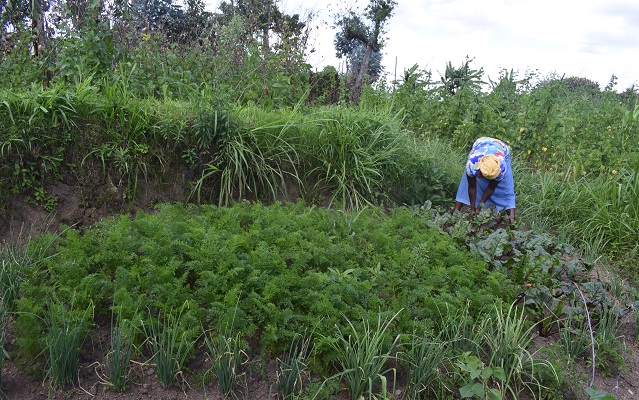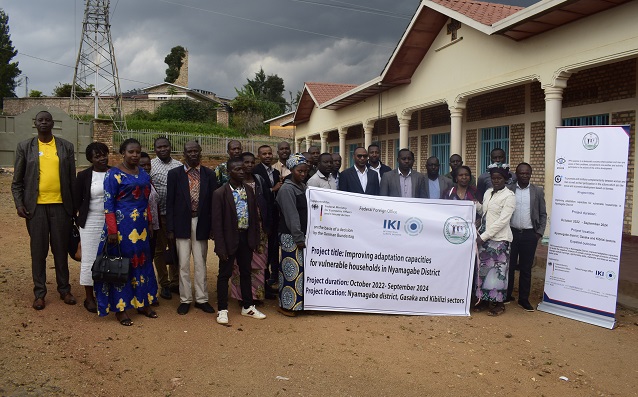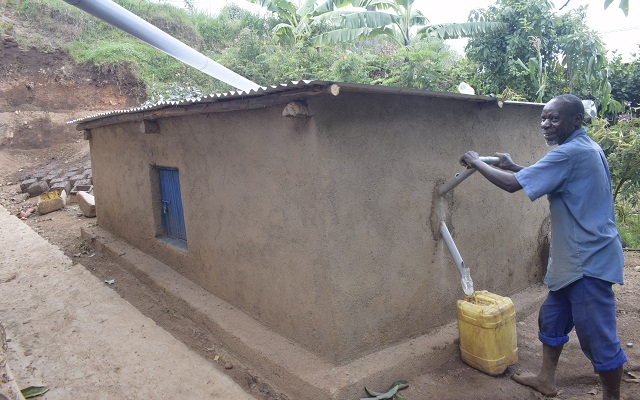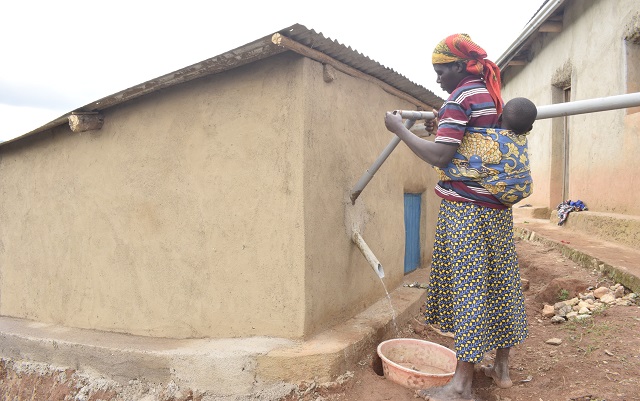Improving adaptation capacities for vulnerable households in Nyamagabe District
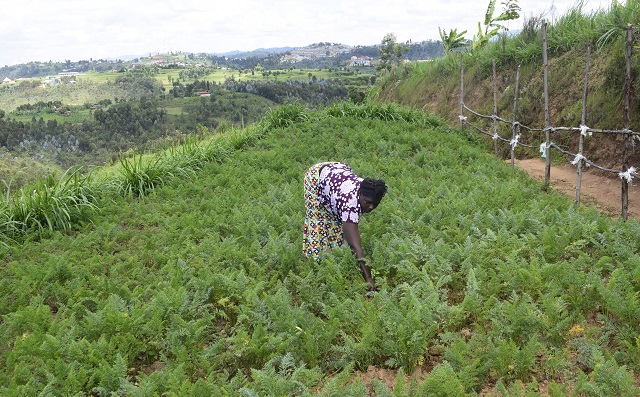
Nyamagabe District in Rwanda is impacted by frequent droughts, floods, and other extreme weather events. Therefore, people need various measures to adapt to climate change. The IKI Small Grants project intends to support poor and vulnerable people to improve their socio-economic development. It helps 300 households to improve their adaptation capacities to tackle the negative impacts of climate change through provision of climate change related trainings, agroforestry skills, materials, trees, and water tanks.
INITIAL SITUATION
Nyamagabe District is one of Rwanda’s 30 districts based in the Southern Province with a population of around 300,000. It is one of the country’s regions with the highest rainfall and is characterised by a high sloppy relief that makes the soils vulnerable to soil erosion and degradation. Climate change causes negative impacts there, such as frequent droughts, floods and other extreme weather events that lead to severe natural disasters.
TARGET GROUP
The project targets rural community members particularly poor and vulnerable household farmers in Nyamagabe district, Gasaka and Kibilizi sectors. In each sector the project targets one community (Cell) and two villages. In total 300 households, including 60% female headed households benefit in four towns villages. The project specifically addresses vulnerable groups, such as smallholder female and male farmers, female headed households including single mothers, households of people who have HIV/AIDS, child headed households, historically marginalized people, households of people having disability, and households of elderly people.
VIDEOS FROM THE PROJECT
APPROACH AND ACTIVITIES
The IKI Small Grants project intends to support 300 poor and vulnerable households in adapting to climate change. The project offers trainings and materials for agroforestry, water tanks and irrigation systems.
The project ensures that community members are trained and take proactive measures to adapt to the negative impacts of climate change, by providing trainings on natural resource management and adaptation measures. It further includes trainings on climate change vulnerability, risks mapping and analysis for the elected water and environmental committees. The communities get support to develop, implement and monitor local adaptation and landscape restoration action plans. Moreover, the project helps households to install water tanks to harvest rainwater. The beneficiaries receive a training on the maintenance of water tanks and rainwater management. The organisation installs tree nurseries for soil and water conservation and plants 80,000 agroforestry trees. The project also includes the installation of energy-efficient cooking stoves at a household level to reduce the need for firewood and the required cutting of trees.
LATEST PROJECT HIGHLIGHTS AND IMPACTS
- 298 community members trained in natural resources management
- 44 village environment committee members trained on adaptation and mitigation
- 4 climate change action plans elaborated, 22 actions out of 55 are under implementation
- 21 households constructed semi-underground water tanks and 73 more bamboo and plastic water tanks
- 300 households (150 female headed) grow vegetables from climate-tolerant seeds
- 2 Agroforestry nurseries installed
- 196 households use energy-efficient cooking stoves
CAPACITY DEVELOPMENT
IKI Small Grants supports IPFG in their organisational capacity development through:
- Training on gender and climate change mainstreaming in project planning and activities
- Evaluation and development of a strategic plan for 5 years
- Training on participatory natural resource management
- Development of IPFG’s IT and data protection policy
- Revision of IPFG’s procedure manual to align it with new HR policy
ABOUT THE ORGANISATION
IPFG is a non-governmental organization created in 2002 based in Nyamagabe District in Rwanda. All members are concerned about the welfare and full development of the family based on gender equality and the participation of men and women in all programmes aimed at strengthening fairness and democracy. Its mission is to promote and reinforce complementarity between man and woman and to encourage their participation in actions aimed at social and economic development.

